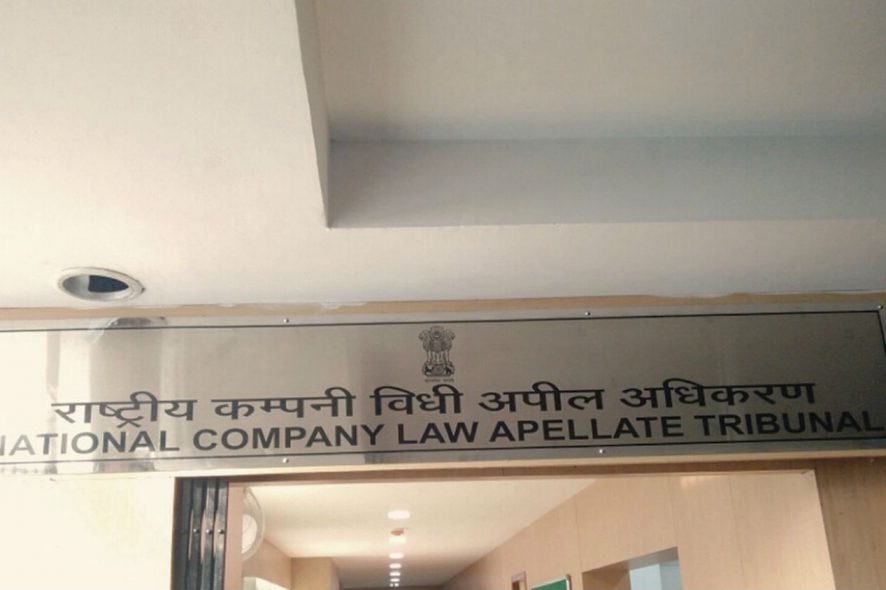National Company Law Appellate Authority Tribunal (NCLAT), New Delhi: The Bench of Justice Bansi Lal Bhatt (Acting Chairperson), Shreesha Merla (Technical member) and V.P. Singh (Technical Member) dismissed an appeal on an impugned order with a 2:1 majority judgment. It was of the opinion that it cannot be held to be an erroneous conclusion warranting interference.
In the present case, the Appellant was the auction purchaser of the property in question, owned by the Corporate Debtor, prior to initiation of CIRP against the Corporate Debtor. The Corporate Debtor had committed default in respect of financial debt, therefore, for recovery of its dues against the Corporate Debtor through sale of land, building, plant and machinery etc., Allahabad Bank in its capacity as a Financial Creditor, sold off the property under the provisions of SARFAESI Act, 2002 (“the Act, 2002”). Then the Appellant submitted the bid along with earnest money deposit of Rs.2.74 Crores for participating in e-auction. The sale had taken place before the commencement of CIRP in respect of the Corporate Debtor. It was further submitted that the Allahabad Bank which issued the notice of sale of property on ‘As is where is basis, as is what is basis, whatever there is basis’, specifically made it clear that the property was free of encumbrances other than those specifically mentioned therein. . Then the Appellant submitted the bid along with earnest money deposit of Rs.2.74 Crores for participating in the e-auction.
Now the question before the Adjudicating Authority was to determine whether the liability towards workmen and employees as also other liabilities pertaining to Corporate Debtor are payable by the purchaser of Unit No.1 or whether the same continues to be admissible against the Corporate Debtor.
The landmark judgment of “Punjab Urban Planning and Development Authority v. Raghu Nath Gupta, (2012) 8 SCC 197” was referred to, which states, “…We may reiterate that after having accepted the offer of the commercial plots in a public auction with a super imposed condition i.e. on “as is where is” basis and after having accepted the terms and conditions of the allotment letter, including installment facility for payment, respondents cannot say that they are not bound by the terms and conditions of the auction notice, as well as that of the allotment letter…”. The Bench found it an absolutely appropriate reasoning to refute the Appellant. And it further was of the opinion that, mentioning it was free from encumbrances would be inconsequential as long as the liabilities known to the Allahabad Bank and brought to the notice of auction purchaser remain undischarged.
The Bench, was thus of the opinion that, “…On perusal of the documents, it was clear that the auction purchaser was aware of all the dues outstanding against the Corporate Debtor and the terms of the sale but it proceeded to participate in the auction…”.
And that the appeal paper book brought it to the fore that all liabilities qua the assets within the knowledge of the Allahabad Bank were reiterated to be paid by the purchaser which included the demand in respect of recovery of PF Department, Income Tax dues, Employee salary dues, outstanding labour payment, retired workers dues, pending dues of Mahendra Orthopaedic Centre, claims in respect of salary under Industrial Dispute matter, claims in terms of demand notice under Section 8 of the ‘I&B Code’ and other demands with the express stipulation that all liabilities on the assets shall be paid by the Appellant. And hence the same was dismissed.
Dissent
In a dissenting opinion, it was held that the Adjudicating Authority had exceeded its jurisdiction in determining third party liabilities in the process.
It further suggested that, “…Even otherwise, the property’ land, plant and machinery has been sold to the Appellant free from all encumbrances. The Appellant had acquired only Part of the property/Assets of the Corporate Debtor and not the Company itself. Therefore, the liabilities of the Company ASSIL had been wrongly fastened upon the Appellant…”
It was also stated that “…It is also pertinent to mention that in the instant case, the entire process of auction sale was completed before the commencement of the Corporate Insolvency Process against the Corporate Debtor ASSIL. Given the law laid down by the Hon’ble Supreme Court in Embassy property (supra), it is clear that Resolution Professional cannot short-circuit the process, to bring a claim before the NCLT taking advantage of Section 60 (5) of the Code…”.
[Tarun International Ltd. v. Vikram Bajaj (RP for Anil Special Steel Industries Ltd.), Company Appeal (AT) (Insolvency) No.1194 of 2019, decided on 03-03-2021]








Madras High Court
M/S.Tci Distribution Centres Ltd vs The Official Liquidator on 8 September, 2009 In view of the material irregularities noticed, which would go to the root of the sale effected by the Official Liquidator, and the appellant, who believed the sale tender notice and the report of the valuer, which were with mis-descriptions, suppression of necessary material particulars and suggestive of things, which were not available, made the offer to purchase and despite the memos and orders of court neither the title deeds pertaining to the property were given nor he was put in actual possession and thus, he has incurred the substantial injury.